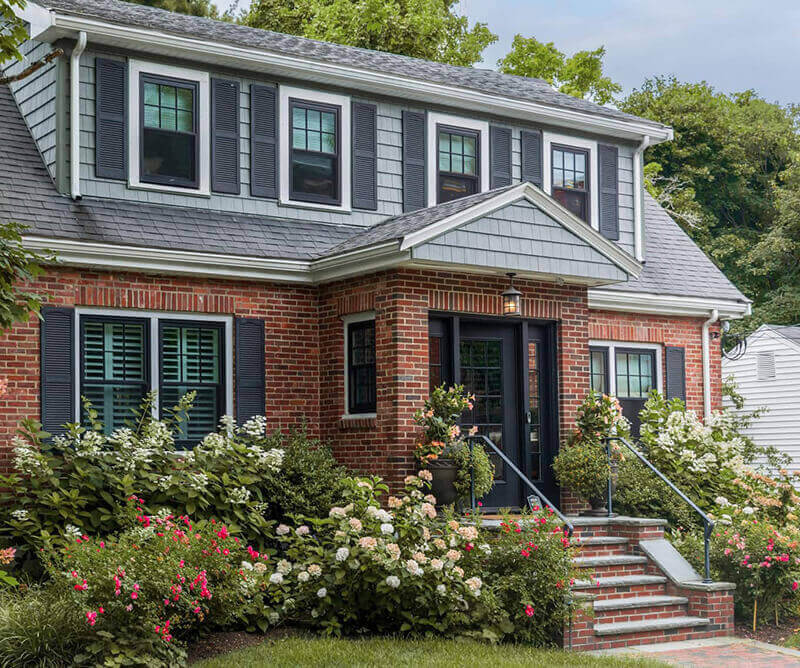Conventional Loan

A conventional loan is not offered or secured by a government entity; however, they can be guaranteed by both Fannie Mae and Freddie Mac, two government-sponsored enterprises.
This loan could be your perfect fit if you have great credit and can afford a large down payment (although a large down payment is not always required — but can help you eliminate paying private mortgage insurance). Whatever your long- or short-term goals are, a conventional mortgage can help you meet them.
Fixed-rate vs. adjustable-rate mortgages
With a conventional loan, you can choose from a fixed-rate mortgage or an adjustable-rate mortgage — also known as an ARM. Here’s how the two differ:
Fixed-rate mortgages
With a fixed-rate mortgage, your mortgage interest rate and payments will be consistent throughout the duration of your loan. You can rest assured knowing your interest rate won’t increase alongside market rates. You may also benefit from refinancing later if market rates decrease. Fixed-rate mortgages are available in a variety of term lengths ranging from 10 years to 30 years.
Adjustable-rate mortgages
An ARM can save you money on your loan, especially if you’ll be living in the home for only a few years. ARMs are available in a variety of configurations and term lengths, with the most common being 5/6, 7/6, and 10/6. The first number in these scenarios represents the number of years your interest rate will remain fixed. The second number represents the period of time in months where your interest rate could change after the fixed period expires. This is called the adjustment period.
Rates may increase or decrease during adjustment periods and make your monthly payments higher or lower respectively. However, there are caps set on ARMs to protect against rate increases.
Conventional loan types
From buying a home you love to building the home you’ve dreamed of, there are several types of conventional loans to help you get it done.
-
Owning a home is more possible than you may think. When you’re ready to buy, there are several conventional loans for purchase, some with little to no down payment required.
- Fannie Mae HomeReady®
- Freddie Mac Home Possible®
- Freddie Mac HomeOne®
-
A refinance is a new loan that replaces an existing mortgage — typically to get more favorable terms or payment options.
- Cash-out refinance
- Fannie Mae student loan cash-out refinance
- Fannie Mae RefiNow®
- Freddie Mac Refi Possible®
-
When you can’t find a house that ticks all the boxes, it’s time to renovate. A renovation loan allows you to customize a home you’re buying, or one you own now.
- Fannie Mae HomeStyle®
- Freddie Mac CHOICERenovation®
- Fannie Mae HomeStyle Energy®
- Freddie Mac GreenCHOICE Mortgages®
-
A construction loan is a mortgage to build a home. Our in-house construction team specializes in making the financing hassle-free for you and your home builder so you can focus on what’s important for your new house.
Conventional down payment assistance programs
We have programs designed to put homeownership within reach by providing funds for down payments and closing costs. In addition to the programs listed here, there are state, regional and city down payment assistance programs. Your loan officer can help you find local programs.
- The National
Conventional loan requirements
Conventional loan eligibility includes having sufficient income and credit history to qualify. When applying, we’ll review your ability to make a down payment and pay other upfront costs and fees. Here’s a list of the information we’ll typically need:
-
1
Proof of income
May require 30 days of pay stubs and year-to-date income, two years of federal tax returns, 60 days of all asset accounts including checking, savings, and investment, and two years of W-2 statements.
-
2
Assets
You will need to present bank statements and investment account statements to prove that you have funds for the down payment and closing costs. If you utilize money from friends or relatives, you will need a gift letter to certify that you’re not obligated to repay.
-
3
Employment verification
In addition to pay stubs, we’ll need to verify that you are still employed and confirm your current salary. If you have recently changed jobs, contacting your previous employer may be necessary.
-
4
Other documentation
To verify your identity, we’ll need your driver’s license or other state ID and Social Security number.
Conventional loan FAQs
-
A conventional loan is any mortgage not insured or guaranteed by the government. These mortgages adhere to Fannie Mae and Freddie Mac’s standards, such as conforming loan limits.
-
Usually, no. Conventional loans typically contain a due-on-sale clause, allowing the lender to demand the remaining loan amount once the property is sold. This means it cannot be assumed except for certain circumstances like death or divorce. However, if your conventional loan includes an assumption clause, it may be assumable.
-
FHA loans are backed by the Federal Housing Administration (FHA) and offered by FHA-approved lenders. Conventional loans are not insured or guaranteed by a federal agency. Important differences between these two home loans include:
- FHA loans are generally easier to qualify for than conventional loans
- Mortgage insurance may be mandatory for the life of an FHA loan but is only required with less than a 20% down payment with conventional loans (and can be canceled later)
- FHA loans are only for primary residences, while conventional loans can finance primary residences, second homes and investment properties




